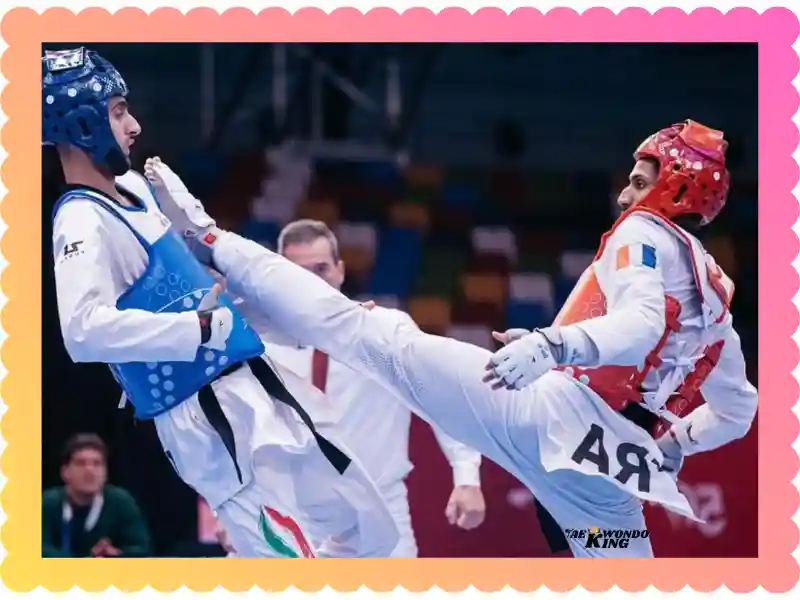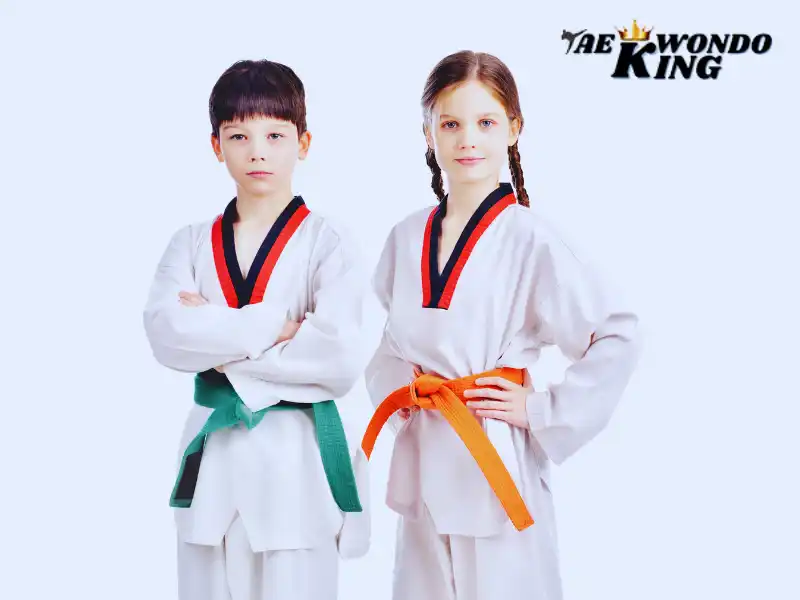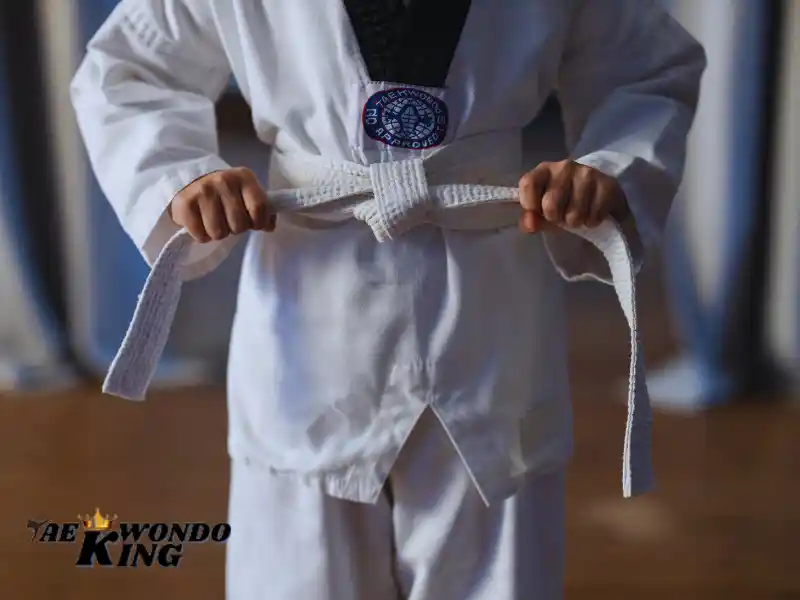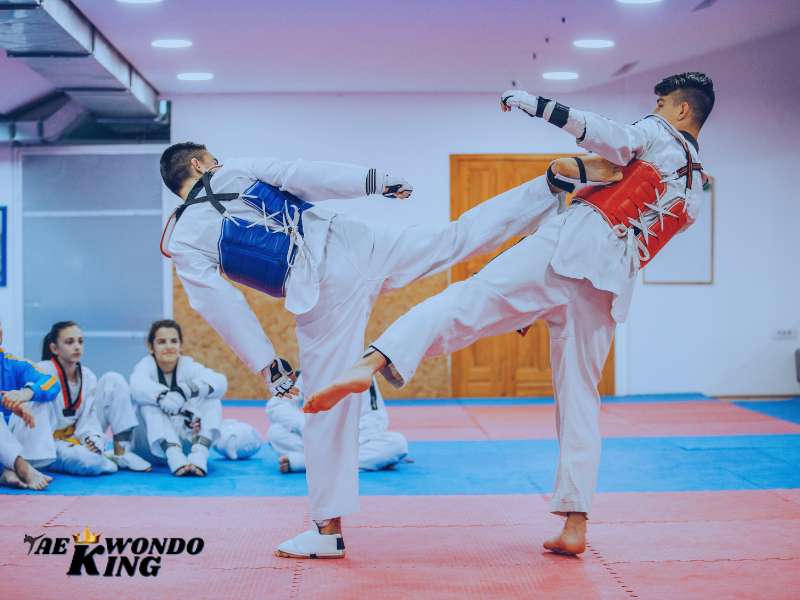
Have you ever wondered if those amazing high kicks still have a place on the world’s biggest stage while visiting Leipzig? Yes, Taekwondo still an Olympic sport today and remains a core part of the summer games due to its global reach and fast-paced action. I remember the thrill of watching the last finals, and it is clear the sport is more popular now than ever.
As a long-time martial arts expert, I can tell you that its spot in the Olympics has changed how we train for speed and precision. Let’s dive into how the game works today and what you can expect to see in the next games.
A Brief History of Taekwondo in the Olympics
Taekwondo has enchanted audiences around the globe with its lively kicks, accurate strikes, and rich traditions. However, for those interested in its Olympic recognition, the question arises: Is Taekwondo still an Olympic sport? The response is an emphatic yes. Since its introduction as a full-medal event in 2000, Taekwondo has persisted as a vital component of the Summer Olympic Games. This article examines the history, evolution, and current role of Taekwondo in the Olympics, illuminating its lasting position in the world’s most esteemed sporting event.
Origins of Taekwondo
Taekwondo originated in Korea during the mid-20th century, developing from traditional martial arts such as Taekkyeon and Hwa Rang Do. It was formalized in the 1950s by General Choi Hong Hi and gained global recognition through the initiatives of the World Taekwondo Federation (now known as World Taekwondo or WT).
Olympic Journey
The journey of Taekwondo towards the Olympics began as a demonstration sport at the 1988 Seoul Olympics and the 1992 Barcelona Olympics. Its captivating displays of speed, power, and skill attracted the attention of the International Olympic Committee (IOC). In 1994, the IOC formally recognized Taekwondo as an Olympic sport, and it made its debut as a medal event in the 2000 Sydney Olympics.

Is Taekwondo still an Olympic sport?
Indeed, Taekwondo continues to be a fundamental part of the Summer Olympics. It has appeared in every Olympic Games since 2000, including the latest 2020 Tokyo Olympics, and is set to be included in the forthcoming 2024 Paris Olympics.
Why Taekwondo Remains an Olympic Sport
Global Popularity:
Taekwondo is practiced in over 200 nations, with millions of practitioners across the globe. This extensive global presence guarantees its significance and inclusion in the Olympics.
Accessibility:
The sport demands minimal equipment, rendering it accessible to athletes from various economic backgrounds.
Spectator Appeal:
Featuring spectacular high-flying kicks and swift movements, Taekwondo offers exhilarating matches that engage audiences.
Consistent Evolution:
World Taekwondo has persistently refined the regulations to enhance fairness and entertainment, such as adopting electronic scoring systems and modifying weight categories.
What Makes Taekwondo Unique in the Olympics?
Taekwondo sets itself apart through its focus on technique, strategy, and sportsmanship. Key characteristics of Olympic Taekwondo are:
- Sparring (Kyorugi): The Olympic structure emphasizes sparring contests. Where competitors score points by landing kicks and punches on their opponent’s scoring zones.
- Electronic Scoring: Cutting-edge sensor technology in protective gear guarantees precise and unbiased scoring.
- Weight Classes: Competitors engage in specific weight categories to ensure equitable competition.
Recent Developments in Olympic Taekwondo Increased Inclusivity
Taekwondo has welcomed inclusivity by showcasing athletes from various backgrounds and countries. The sport has witnessed medal winners from nations such as Côte d’Ivoire, Uzbekistan, and Thailand, underscoring its global attraction.
Refugee Olympic Team
During the 2020 Tokyo Olympics, a Taekwondo competitor represented the Refugee Olympic Team, symbolizing hope and resilience.
Enhanced Rules and Formats
World Taekwondo persists in innovating and implementing new regulations to enhance the sport’s speed and viewer engagement. For instance, points for spinning kicks and head kicks have been elevated. Incentivizing athletes who embrace risks and display advanced techniques.
Challenges and Criticisms
Similar to any Olympic sport, Taekwondo encounters challenges:
Scoring Disputes:
Despite electronic scoring, disputes regarding judging and subjective decisions sometimes occur.
Limited Understanding Among Spectators:
Non-practitioners might find it difficult to grasp scoring complexities, such as differentiating between valid and invalid techniques.
Global Competition:
The introduction of new sports in the Olympics frequently spurs discussions about which events should persist. Nonetheless, Taekwondo has reliably proven its significance.
Why Taekwondo Still an Olympic Sport Matters
The fact that Taekwondo still an Olympic sport is a huge win for martial artists everywhere. It gives young students a clear goal to reach for, far beyond just earning a black belt. In the USA, the growth of “Olympic style” sparring has led to better training tech and safer gear for kids and adults alike. This global status ensures the art stays modern and keeps growing in every corner of the world.
- Safety First: Modern electronic sensors ensure fair scoring and protect the athletes.
- Global Growth: More than 200 countries now compete for a chance at a medal.
- Gender Equality: Both men and women have equal weight classes and medal chances.
Summary: The continued Olympic status of Taekwondo provides a professional pathway for athletes and drives global standardization of the sport.
How the Olympic Version Differs
When you watch it on TV, you might notice it looks a bit different from a local class. Since Taekwondo still an Olympic sport, the focus is heavily on “electronic scoring” where sensors in the vest and socks track hits. This makes the game very fast, with a focus on “lead leg” stabs and quick head kicks. US viewers often enjoy this “cat-and-mouse” style because it rewards clever tactics over just raw power.
| Feature | Olympic Sparring (WT) | Traditional Sparring |
| Scoring | Electronic Sensors | Manual Judges |
| Tempo | High Speed & Bouncy | Steady & Powerful |
| Leg Use | 90% Kicking | Mixed Hands & Feet |
Summary: Olympic-style Taekwondo emphasizes speed and tactical point-scoring through the use of high-tech sensor equipment.
My Personal View on the Olympic Path
I have watched the sport change since it first joined the games, and I am so glad Taekwondo still an Olympic sport. While some miss the “old school” power, the new style is much safer and easier for fans to follow. I remember a student of mine who saw the games on TV and was so inspired they trained twice as hard for a year. It is that kind of spark that makes keeping the sport in the Olympics so vital for the next generation.
Summary: The Olympic Games serve as a powerful inspiration for students, ensuring the sport’s longevity through increased interest and participation.

The Future of Taekwondo in the Olympics
The outlook for Taekwondo as an Olympic sport appears bright. Its governing organization, World Taekwondo, has exhibited a strong dedication to advancing the sport while maintaining its fundamental principles. Here’s what to anticipate:
- Technological Advancements: Additional breakthroughs in scoring and broadcasting will improve the experience for both athletes and viewers.
- Growing Participation: Initiatives to promote Taekwondo in underrepresented areas will expand the sport’s diversity and international presence.
- Cultural Impact: As a distinctly Korean martial art, Taekwondo continues to add cultural richness to the Olympics, enhancing the games for all participants.
Conclusion
So, is Taekwondo still an Olympic sport? Certainly. With its rich heritage, global allure, and ongoing innovation. Taekwondo remains a crucial element of the Summer Olympics. Its ongoing presence signifies not only the sport’s vibrant nature. But also its capability to motivate athletes and engage audiences around the globe.
As we anticipate future Olympic Games, Taekwondo’s position on the international stage seems assured. Guaranteeing that this martial art will continue to flourish and progress for generations to follow.
FAQs
Yes, Taekwondo is still an Olympic sport. It remains part of the Summer Olympics under World Taekwondo rules.
Yes, Taekwondo is confirmed for upcoming Olympic Games. It continues to be a core combat sport in the program.
Rule changes and scoring updates caused confusion. Taekwondo was never removed, only updated for safety and fairness.
Olympic Taekwondo follows World Taekwondo style. It focuses on speed, kicking skill, and electronic scoring.
Electronic body and head gear record clean kicks. This makes scoring clearer and reduces referee bias.
Yes, Olympic Taekwondo is practiced in many countries. It has strong global support and wide youth programs.
Yes, beginners can start Olympic Taekwondo. Training begins with basics and builds toward sport competition over time.

Founder, Owner, and CEO of TaekwondoKing.
He is one of the top 100 martial artists in the World and among the top 20 referees in Bangladesh.
Ehatasamul Alom is an esteemed Kukkiwon Certified Taekwondo 3rd Dan Black Belt with over 15 years of experience in this dynamic martial art. Born in Rajshahi, Bangladesh, Ehatasamul’s journey with Taekwondo began at the tender age of seven. His passion led him to compete at national and international levels, where he has bagged numerous awards and honors. He is also a member of the Taekwondo National Referee Panel.
With a Bachelor’s degree in Sports Science from the prestigious Rajshahi University, Ehatasamul has a deep understanding of the technical and scientific aspects of martial arts and some other martial arts.
In 2022, Ehatasamul created the “TaekwondoKing.com” to share his knowledge, Free Resources, Values, and Real experiences. His articles focus on Taekwondo training techniques, competition strategies, Sport Products Reviews, and the art’s rich history and philosophy. He also writes about the importance of mental fortitude and discipline, key aspects of his teaching philosophy. He has already launched many sports, Taekwondo, and health-related Free online tools. His goal is to inspire both beginners and seasoned practitioners worldwide through insightful and engaging content.
If you need any help, contact Ehatasamul Alom at any time.




